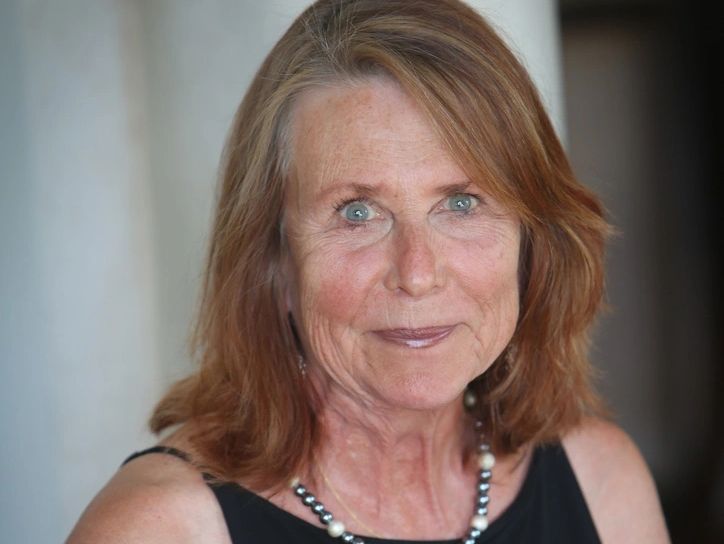 The fanaticism of the MAGA conservatives rests on cynicism and conspiracy, a fundamental belief that the world (the Republican party, Democrats, Hollywood elites, paper shredding trucks) is out to get them, to squeeze their voice—and their vote—from existence. In their view, the only way to fight this grand conspiracy is through a ferocious commitment to ideology and an organized grassroots movement, sponsored by MyPillow.
The fanaticism of the MAGA conservatives rests on cynicism and conspiracy, a fundamental belief that the world (the Republican party, Democrats, Hollywood elites, paper shredding trucks) is out to get them, to squeeze their voice—and their vote—from existence. In their view, the only way to fight this grand conspiracy is through a ferocious commitment to ideology and an organized grassroots movement, sponsored by MyPillow.
A review of Shocking the Dark by Robert Lowes
 Scant need to explain the theme. Here we have a wistful reflection, one of the attendants of faith. The question of evil is difficult enough; here we touch upon the divine conscience. And it’s even in an almost 10-9 meter, save for the final line. Almost.
Scant need to explain the theme. Here we have a wistful reflection, one of the attendants of faith. The question of evil is difficult enough; here we touch upon the divine conscience. And it’s even in an almost 10-9 meter, save for the final line. Almost.
Samuel in the Quantum Field: How One Boy’s Holocaust Story Can Help Us Bridge Space, Time, and Everything In Between – An interview with author Elyn Joy
 The author of Samuel in the Quantum Field talks about the inspiration for her book, her research and transcription process, her unique, physics approach, the book’s relationship a Sioux City railroad memorial exhibit called Desperate Passages, and lots more.
The author of Samuel in the Quantum Field talks about the inspiration for her book, her research and transcription process, her unique, physics approach, the book’s relationship a Sioux City railroad memorial exhibit called Desperate Passages, and lots more.
A review of Owning the Not So Distant World by Grace Cavalieri
 Grace Cavalieri is by turns as sagacious and oblique as a Zen koan, her verses brimming with aphoristic wisdom, and also charmingly chatty, like your best friend in the world, oscillating between aloof and intimate but always appealing.
Grace Cavalieri is by turns as sagacious and oblique as a Zen koan, her verses brimming with aphoristic wisdom, and also charmingly chatty, like your best friend in the world, oscillating between aloof and intimate but always appealing.
A review of Little River of Amazement by Mary Kay Rummel
 Mary Kay Rummel’s universe is vast, but as “Ars Poetica” spells out, she focuses on the world around her with a keen attention to detail. The title, indeed, says it all.Little River of Amazement comes from one of the new poems, “December Bodies,” in the first of her two-part suite of new work, For the Speechless World.
Mary Kay Rummel’s universe is vast, but as “Ars Poetica” spells out, she focuses on the world around her with a keen attention to detail. The title, indeed, says it all.Little River of Amazement comes from one of the new poems, “December Bodies,” in the first of her two-part suite of new work, For the Speechless World.
Revenge Follows Function: A review of The Inhabitants by Beth Castrodale
 In this entertaining and creative novel, Castrodale smartly weaves together modern and classical literary takes on potions and tonics, nature and nurture, motherhood and friendship, grieving and healing, and the perils of trusting the wrong people while distrusting one’s own instincts.
In this entertaining and creative novel, Castrodale smartly weaves together modern and classical literary takes on potions and tonics, nature and nurture, motherhood and friendship, grieving and healing, and the perils of trusting the wrong people while distrusting one’s own instincts.
A review of Zero at the Bone by Christian Wiman
 Poetry gives suffering form, and giving suffering form is an antidote to despair. Yet content matters, too. For Wiman, much confessionalism is “an idolatry of suffering…an outrage that no person (or group) has suffered as we have, or simply a solipsistic withdrawal that leaves us maniacally describing every detail of our cells.
Poetry gives suffering form, and giving suffering form is an antidote to despair. Yet content matters, too. For Wiman, much confessionalism is “an idolatry of suffering…an outrage that no person (or group) has suffered as we have, or simply a solipsistic withdrawal that leaves us maniacally describing every detail of our cells.
Mary Pacifico Curtis and Sybil Baker In Conversation

 The authors of Understanding Moonseed and Apparitions chat about their books, inspirations, their settings and the importance of place, process, spirituality, ghosts, magic realism, the impact of covid, and much more.
The authors of Understanding Moonseed and Apparitions chat about their books, inspirations, their settings and the importance of place, process, spirituality, ghosts, magic realism, the impact of covid, and much more.
A review of Lucky by Jane Smiley
 Smiley’s underlying theme, however, is the precariousness of this immortality. While presenting Jodie’s maturation as a woman and artist, she quietly notes some major historic events of the passing era.
Smiley’s underlying theme, however, is the precariousness of this immortality. While presenting Jodie’s maturation as a woman and artist, she quietly notes some major historic events of the passing era.
A review of Therapon by Dan Beachy-Quick and Bruce Bond
 Throughout this masterful book of collaborative poetry, the theme of Otherness is explored, whether through naming the nameless or gathering and disseminating the knowledge that the naming gives us.
Throughout this masterful book of collaborative poetry, the theme of Otherness is explored, whether through naming the nameless or gathering and disseminating the knowledge that the naming gives us.